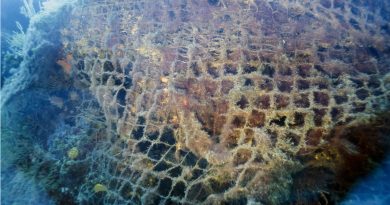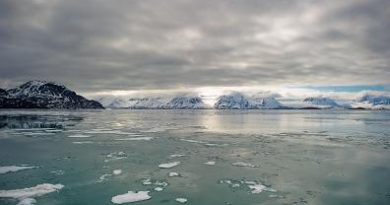Arctic Canada: label ringed seals a species of concern, wildlife advisers tell feds

Ringed seals in Nunavut are facing changes in their habitats because of climate change, says a group of wildlife advisers.
In a report, the independent group of experts that make up the Committee on the Status of Endangered Wildlife in Canada, asked the federal government Monday to list ringed seals as a species of special concern under Canada’s Species at Risk Act, which aims to prevent wildlife from disappearing and helps recover threatened species.
The researchers used Inuit knowledge, along with interviews and inventories from the government of Nunavut, to come to this conclusion says David Lee, co-chair of marine mammals for that committee.
“Scientific information on numbers and distribution of ringed seal is extremely limited because of the difficulty to conduct scientific surveys on the species,” Lee said.
Lee explained that because Inuit are on the land, they can observe ringed seal movement from one area to another, especially in response to changes in sea ice or snow cover.
“Inuit knowledge was superior, especially with respect to local observations,” said Lee.
The report says ringed seals are not endangered or threatened, but they could become vulnerable if sea ice lessens or temperatures in the Arctic continue to change.
David Lee, Committee on the Status of Endangered Wildlife in Canada
Lee also works as a wildlife biologist for Nunavut Tunngavik Inc., the group that represents Inuit in Nunavut, although his role with the committee is not related to his work with the Inuit organization.
Lee said Inuit knowledge does not suggest a drop in ringed seal numbers, but rather that there are changes in where seals are travelling and when.
“Inuit have noticed a number of changes, but they have not declared that the actual numbers have declined.”
If ringed seals are listed as a species of special concern, they can be monitored better, Lee said. That new data could help harvesters who rely on ringed seal for food, and can even help spur the economy within Nunavut’s seal harvest, which is mostly subsistence based, according to Lee.

Seal harvest won’t be hampered
The group of independent experts makes recommendations to the federal minister of Environment and Climate Change. The government is expected to respond to the assessment next year.
If ringed seals are listed as a species of special concern, this won’t change how seal are harvested in Nunavut, Lee said.
“If the minister were to proceed with it being listed as special concern, then any recommendation on ringed seal would need to go through the Nunavut Agreement — meaning that any changes or recommendations on harvest would need to go through the Nunavut Wildlife Management Board.”
That board handles all quotas and hunting laws in Nunavut. Right now, seals in Nunavut are primarily hunted for food.
The committee worked on the report for five years. They last assessed ringed seals in 1989. The same committee will also soon assess narwhal, beluga and bowhead whales.
Polar bears are already listed under the federal Species at Risk Act as a species of special concern.
“With the very large increase of polar bears in Baffin Bay, bears are considered a serious threat that has potentially affected the number of ringed seal,” Lee said.
[WATCH] The reduction of Arctic sea ice is also spreading an invisible threat that kills marine mammals, including ringed seals, in the Atlantic and Pacific oceans, according to a study. The paper found that Phocine distemper virus (PDV) had spread from North Atlantic seals to populations of sea otters living in the North Pacific Ocean. Eye on the Arctic spoke to author Dr. Tracey Goldstein from the University of California, Davis, and asked her a few questions about her study:
Related stories from around the North:
Canada: Arctic sea ice loss linked to spread of deadly virus in marine mammals, Eye on the Arctic
Finland: Finland’s endangered Saimaa ringed seal population reaches 400, Yle News
Greenland: Oldest Arctic sea ice vanishes twice as fast as rest of region, study shows, Eye on the Arctic
Norway: In Arctic Norway, seabirds build nests out of plastic waste, The Independent Barents Observer
Russia: Russian Arctic town overrun by polar bears, CBC News
Sweden: Warnings in Sweden about dangerous bacteria in Baltic Sea, Radio Sweden
United States: Heat stress that caused Alaska salmon deaths a sign of things to come, scientist warns, CBC News



